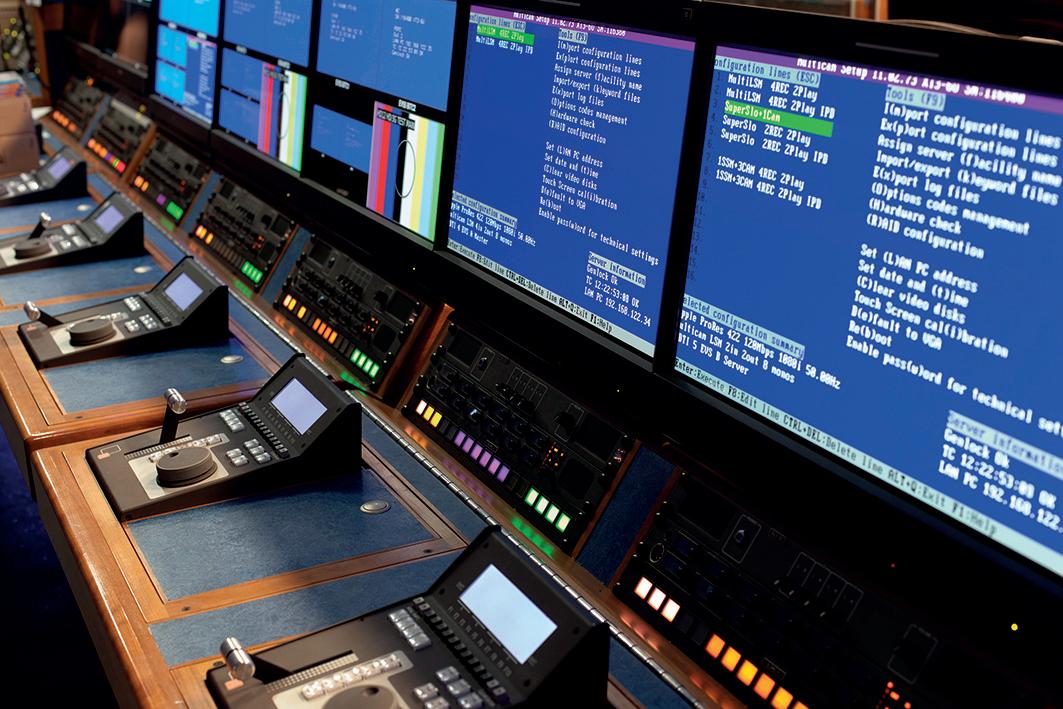
2 minute read
Six Nations Championship
The Six Nations Championship annually pits Europe’s most powerful rugby teams against each other: Scotland, France, Wales, England, Ireland and Italy. Originally contested only by the British nations, the championship moves many rugby fans in the Atlantic Islands, as well as in France, which definitively joined the competition from the 1947 edition, and in Italy, a country that has been fighting for the title since the year 2000. The tradition of the competition and the historical sport rivalries promote that this European tournament attracts a great number of followers in the old continent.
In fact, in Great Britain, the distribution rights are shared between two of the country’s main broadcasters: the BBC and ITV. In this interview with Matthew Griffiths, Series Producer at BBC Television; you will find the details of the production that the BBC will use to bring the thrilling action of this sport to British homes.
Since the last edition of the championship held in 2020, particularly remarkable for its broadcasting evolutions, what have been the evolutions of this 2023 edition?
For this year’s Championship broadcasters and the Six Nations have worked together as usual to bring viewers closer to the action. This year there will dressing room cameras at all the stadiums for the first time.
It was public knowledge that the 2020 edition was broadcast in HD. Have the systems already been upgraded to broadcast in UHD on any of the broadcast channels?
BBC Sport will continue to cover the Six Nations in HD.
In the 2020 edition you also did not introduce remote work models, what was the reason back then?
With the scale of each Six Nations match we felt the benefits to producing the matches on site outweighed the benefits of producing them remotely. So we will continue to produce them locally.
BBC Sport will be deploying an onsite OB vehicle based model for this edition of the Six Nations.
What are the needs of rugby broadcasting and how can technology help achieve them?
To successfully broadcast a Six Nations rugby match, you need to be able to convey all of the action on the pitch as well as the atmosphere and the sense of occasion that comes with matches on this scale. Our matches are covered by over 30 cameras, including 4 RFs, 4 remote mini cameras in the corner flag posts, 2 HiMo cameras, a drone and a 360 wire cam. We utilise 8 replay lines.
What technical infrastructure and manpower will the BBC deploy to cover the Six Nations tournament?
BBC Sport at each match will deploy two OB Units, one for match coverage and one for the BBC unilateral presentation. Connectivity will be achieved through a mixture of fibre and satellite facilities to provide diverse redundant transmission circuits. All of this will be expertly engineered and operated by over 70 members of crew.
What are the particularities of your capture systems? What technologies have you deployed and what formats are you working on?
BBC Sport through our facillities partner EMG Will be utilising a mixture of Sony Camera models to capture the coverage including HDC2500 Camera channels and HDC4300 Camera channels to capture camera angles in mixture of 2x, 3x and up to 6x speeds, along with deploying a Spidercam system.
To enable BBC Sport to get ‘closer’ to the action they will be deploying RF mini cameras in the try line flags using camera systems developed by Broadcast RF.
These systems all working in 1080i.
All replay requirements will be facilitated by a mixture of EVS Servers.
What kind of graphic infrastructure do you have?
The world feed match graphics are designed and provided by AELive and driven by Vizrt machines.
What will be the distribution of the championship, on what channels will it be held, on what infrastructure will it be based?
All of our Six Nations matches are broadcast on BBC1 and iPlayer.
Distribution and production rights are shared among different broadcasters. The BBC will be in charge of production and, consequently, of all matches played on home pitches in Scotland and Wales.
In addition, the BBC has acquired exclusive rights to the women’s Six Nations and the men’s under-29 tournament.










